#Antonio Lillo
Text
stasera @ fango radio: 'vocale', a cura di elisa longo
https://fangoradio.com
OGGI, lunedì 11 dicembre, alle ore 23:00, nuova puntata di Vocale, un esperimento di poesia trasmesso da Fango Radio. Questo il link per ascoltare la diretta:https://www.fangoradio.com/(Mentre il link per riascoltare le puntate precedenti è https://www.fangoradio.com/shows/301)Con le voci diAmelia Rosselli letta da Elisa LongoMichelangelo CovielloAntonio LilloRosaria Lo…

View On WordPress
#Adriano Cataldo#Amelia Rosselli letta#Antigone#Antonio Lillo#Carmen Gallo#diretta#diretta radiofonica#Dome Bulfaro#Domenico Ingenito#Elisa Longo#Elisa Ruotolo#Eugenio Griffoni#Fango Radio#June Scialpi#Laura Amponsah#Letizia Polini#lettura#letture#Luca Chendi#Marcello Strommillo#Marco Amore#Marina Corona#Mario De Santis#Michela Gorini#Michelangelo Coviello#Michele Zaffarano#poesia#poesie:#radio#reading
0 notes
Text
Il mostro della cripta
Il mostro della cripta
Benvenuti o bentornati sul nostro blog. Nello scorso articolo siamo tornati a parlare di animazione e lo abbiamo fatto non con la Disney ma con un piccolo e interessante film francese, Un gatto a Parigi. Una storia di un ladro di gioielli e di una famiglia con una bambina che ha smesso di parlare dopo la morte del padre e con una madre impegnata nel catturare il criminale che ha ucciso il marito.…
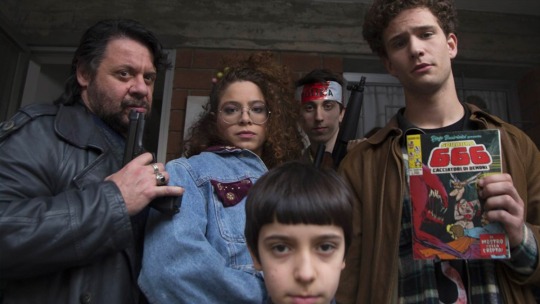
View On WordPress
#Alessandro Pondi#Amanda Campana#Antonio Manetti#Bobbio#commedia#Cristiano Ciccotti#Daniele Misischia#Diego Busivirici#Eleonora Branchini#Federico Maneschi#film#Giò Spada#horror#Il mostro della cripta#Isac Roitn#Lillo#Lillo Petrolo#Ludovico Girardello#Manetti Bros#Marco Manetti#Mompracem#Nicola Branchini#Paolo Logli#Pasquale Petrolo#Recensione#Recensione film#Roma#Sergio Stivaletti#Squadra 666#The End? L&039;inferno fuori
0 notes
Text
Alexandre Dumas on a childhood anectdote of the Hugos in colonized Spain
(as a warning, there's a brief mention of physical violence and an implication of rape)
(context is the school (the seminaire des Nobles*) was attended only by spanish nobles supporting Joseph bonaparte (only 25 students were left, before the napoleonic invasion it hosted 300) Victor was refered to as Count, that made him very proud. Victor was 9, Eugène was 10, and Abel Hugo was 12.)(Adèle Hugo also tells this story in her bio of Vic)
"there was a boy who was exceptionaly, not a noble, but nevertheless he wasn't the less remarkable figure at the college.
He was a young officer, 15 years old, he was named Lillo**, was made a prisoner at the site of Badajoz.
He had fought like a demon, killed a french grenadier, and could only be caught after a heroic defense.
He was going to be executed (shot) but, by chance, Marshal Soult passed by, was informed, learnt what all that was about and sent him to Madrid with the order to be sent to the College.
The order was executed: Lillo was sent to the college, only that in the capacity of both student and prisonner.
This child, who had had the title of sous-lieutenenant, who had commanded men, who had roamed the country side with his (harnois, military equipment) on his back, took the college discipline badly for it was abounding in jesuitic silliness, to which, excepting in the common dormitory, where everyone had their private alcove, he was submitted like the others.
Thus he lived, how it was allowed, solitary, and nursing a rage in the bottom of his heart. In his interactions with the other young people, he was cold, melancoly and haughty.
there's no need to say that the three Frenchmen (the Hugos) where object of his private hatred, and that at every instant he held a grudge, (edit: thanks @gavroche-le-moineau for the heads up on “avoir maille à partir avec”!!) him, a soldier of Ferdinand VII, against one or the other of the three sons, and sometimes with the three sons of general joseph.
One day, facing Eugene, he refered to Napoleon as Napoladrón (napoleon the thief) ; it must be said that this was the name given almost daily to the victor of Austerlitz.
The insult stinged Eugène, who hit back with this verbal riposte: Lillo had been found when taken prisoner, between the legs*** of the french grenadiers.
Lillo had a compass in his hand; he did not stop to look for another weapon, he flung himself over Eugène, and hit him violently in the cheek.
The injury, or rather, the cut (blessure ou plutot la déchirure) was an inch and a half long.
Eugène wanted to duel him, Lillo wanted nothing less, but the professors intervened and separated the young man and the child.
The next day, Lillo had disapeared, and neither Victor nor his brothers never knew what became of him.
I can still hear Victor's low voice the day he told me this story:
-He was right, this young man: he was defending his country…. but children can't understand that!
*actually both Adele and Dumas say he went to de college des nobles, when the hugos actually attended el Real Colegio de San Antonio Abad (?) nobody knows why the name of the school was changed in both retellings of the story. so it might have been Romantizized, possibly by Hugo.
**Adéle calls the boy Lino, and in fact a Lino Fabrat is listed as a student in the college in 1811
***Eugène seems too young at 10, to be implying Lillo/Lino was raped by the soldiers, but he might be repeating innocently (or not that innocently, the Hugos had seen their share of crimes of war as children in Spain) something he had heard from others
(i was able to get those footnotes thanks to this article -in spanish- about why Hugo includes Badajoz in les mis)(it is extremely interesting and well researched, reveals a lot of how Victor reworked actual events and characters into his fictions)
#long post#text post#my translations#alexandre dumas#victor hugo#french romantics#i found this thanks to lunita shalott's mention of tholomyès' song#but the anecdote has a certain similarity with the être libre scene in les miserables#maybe#and this is obviously hugely speculative#this is the cause of combeferre's very tenuous connection with spain
51 notes
·
View notes
Text
(Fuck)
Part 61 of Biases and Expectations
"Fuck therapy."
His wife snorts before bursting out laughing. She lays her head on his chest, breathing him in. "I'm pretty sure that woman just flayed us with words."
"Fuck her too."
Emilia slaps his arms lazily but she's smiling. "It hurts but I'm feeling a little better now."
"Yeah." Xanxus kisses her, pulling her closer again. "We're taking therapy days off." There's no way Xanxus is working after this.
"Ok."
It's a strange thing but Xanxus realizes these last few weeks have been the longest they've spent together without the kids around or his elements interrupting. Just the two of them. They should have done this before having kids, in all fairness. But Xanxus wanted nothing to do with her and Antonio is the result of Xanxus giving up and bending to his father's will. For all that he loves the kid now, it was a way to shut up Timoteo at first. This is messed up in way too many levels but Xanxus is willing to go through hours and hours of therapy if it'll get him the results that he wants. "I want my wine."
"Same." Emilia stands, "what do you want for dinner? I should get on that."
"Whatever is fine." Xanxus turns around, watching her wander around the kitchenette. "Was that one of the lessons? Cooking?"
Emilia blinks, setting down the pan to stare at him for a moment. "No. When I was little, before… uhm, before he left. Lillo spent most of his time with me, he was the one that was there. He'd take me to the kitchen sometimes, when he was angry. And we'll bake, all day just baking. He taught me."
Fuck Lillo. Xanxus hates the bastard but he gets what Emilia is trying to do. "You're good at it." At cooking, at least. Emilia hasn't baked for him. "I like it." He watches in a little fascination as his wife blushes, she doesn't do that much. But he likes it, that she grows shy with compliments. It's one of the few things he's been learning about her.
"I'm glad." She clicks her tongue, turning around to check the fridge. "I enjoy it."
He guesses he's never thought about it, whether or not Emilia likes doing the things she does. It's probably something that they should talk about in therapy. "What are you going to make?"
"I don't know. What about soup?"
It's cold enough. There's snow covering the ground outside, as far as the eye can see. Pure white all around them. It's surprising, he didn't take her for somebody that enjoys solitude but she's been relaxed. Even if she's still walking around him like he's a bomb about to explode. He did point a gun at her, in fairness. It's why he's been leaving his guns in the bag. "Soup is fine." He stands up from the couch, "you like the cold."
Emilia shrugs, "I like winter. I like the colours in autumn and the coziness of winter."
"The coziness?"
"It's good weather for hot cocoa and there's the fireplace. It's nice." Emilia starts cutting up the vegetables.
Xanxus watches the rhythmic movement of the knife. "You've never done that with us."
She bites her lip. "I do. Anton and Nicki like it. It's just… you're usually working and it was something to share with them." Something private, she doesn't say.
20 notes
·
View notes
Text
Stanotte ho sognato che con un amico giardiniere riuscivamo a creare un libro con delle radici innestate nella carta delle pagine da cui potevano nascere delle piantine che, se ben curate dal lettore, crescendo lo avvolgevano lentamente. Se le radici davano fiori o frutti erano tutti diversi fra loro perché prendevano i diversi colori o sapori del libro in relazione a come lo aveva vissuto il lettore. E quando finiva il libro lo potevi mettere in un vaso o in giardino così continuava a crescere per fatti suoi anche se non avevi più bisogno di lui e passavi ad altro.
antonio lillo
14 notes
·
View notes
Text
Convegno a Favara: "Giorno della Memoria e del Ricordo" al Liceo Martin Luther King
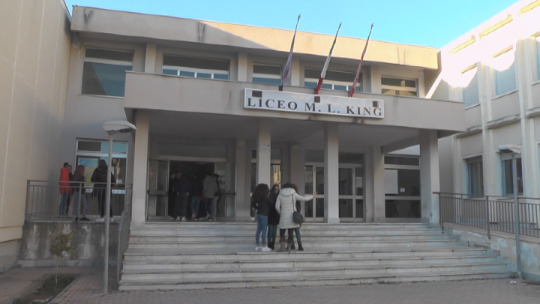
Domani, giovedì 8 febbraio, alle ore 9:30, il Liceo Statale Martin Luther King di Favara, guidato dalla dirigente scolastica prof.ssa Mirella Vella, sarà il palcoscenico del convegno "Il Giorno della Memoria e del Ricordo". L'evento, giunto alla sua XI Edizione, si svolgerà in collaborazione con il Comune di Favara, l'associazione Penna Sottile e la Società di Storia Patria Agrigentina.
Il convegno ha l'importante obiettivo di evidenziare e commemorare le vittime della seconda guerra mondiale, dell'olocausto e delle Foibe. Saranno presenti illustri ospiti, tra cui il sindaco di Favara Antonio Palumbo, la preside Mirella Vella, il viceprefetto Massimo Signorelli, Dino Svettini Profugo istriano, don Nino Gulli, Brunetto presidente della Società di Storia Patria Agrigentina, il vicepresidente di Penna Sottile Lillo Montaperto. In collegamento streaming, interverrà Renzo Codarin, mentre dal vivo sarà presente Salvatore Pirrera dell'associazione Venezia Giulia Dalmata. La moderazione degli interventi sarà a cura di Giuseppe Crapanzano.
La manifestazione, coordinata dalla prof.ssa Giada Attanasio con la collaborazione delle docenti Arianna Vassallo e Antonella Sgarito, insieme al professore Sciortino dell'Istituto Comprensivo Brancati, coinvolgerà anche le rappresentanze di tutte le scuole di Favara, che presenteranno lavori tematici realizzati dagli allievi. Un momento di riflessione e memoria per la comunità locale.
Read the full article
0 notes
Text
Pedían un rescate de 2.000 euros para devolverlo al Nacimiento. Dos jóvenes resultaron detenidos por la policía. Ambos reconocieron la autoría de los hechos
Valeria Gómez
Robal el niño Jesús del portal de Belén de San Vicente del Raspeig (YouTube)
Dos individuos han asaltado el portal de Belén de Sant Vicent del Raspeig (Alicante) y han secuestrado la figura del niño Jesús. Y no se han quedado ahí, posteirormente han compartido un video en la plataforma de redes sociales TikTok pidiendo su rescate.
En este video, publicado por una cuenta identificada como ‘Secuestradores de San Vicente’, se observa a dos jóvenes adoptando medidas para evitar su identificación, con pasamontañas negros y chaquetas con capuchas. Cabe destacar que la cara de uno de ellos ha sido pixelada. En la grabación, solicitan la suma de 2.000 euros a la Policía Local como condición para la devolución de la figura robada.
Rodean al niño Jesús de billetes de 10 y 20 euros
En una escena donde ambos jóvenes se sientan en una cama, la figura del niño Jesús está colocada, rodeada de billetes de 10 y 20 euros.
El perfil de TikTok que se hacen los secuestradores de San Vicente (Infobae)
Solicitan a la Policía Local un rescate de 2.000 euros para devolver la figura, argumentando que el cuerpo policial “no cuida bien al niño Jesús”. Advierten que, en caso de no recibir el dinero, causarán daño al integrante del belén, quien según ellos, “pasará la noche con nosotros”.
Al final del video, se observa a dos jóvenes sustrayendo la figura del belén, ubicado entre las calles Pintor Sorolla y Lillo Juan, y colocándola en el maletero de un vehículo.
El Ayuntamiento espera una “pronta resolución” del incidente y lamenta los daños ocasionados, indicando que las fuerzas de seguridad han iniciado los trámites necesarios para esclarecer los hechos. El consistorio reafirma su compromiso de garantizar que las celebraciones navideñas se desarrollen con normalidad.
Amenazas e insultos por un belén LGTBI
En el LXI Congreso Nacional de Belenistas ‘Franciscus, 1223-2023′ en Sevilla, un belén presentado ha suscitado insultos y amenazas debido a las figuras que adornaban su portal: en lugar de la Virgen, a los lados del Niño Jesús se encontraban dos representaciones de San José.
El artífice de esta propuesta es Antonio José Borrero Rodríguez, conocido como Capi, quien presentó con humildad su creación en la que “el niño Jesús, en esta ocasión, está arropado por dos hombres”, como explicó en Antena 3 Noticias.
Imagen del belén de Capi (Belenes de Capi/X)
Capi, con una extensa experiencia en la creación de belenes, comparte sus obras en redes sociales desde hace años. Su proyecto “Belenes de Capi” tiene presencia en X, antiguo Twitter, y cuenta con un modesto canal en Youtube, donde muestra el montaje de diversos nacimientos y el proceso de creación de algunas de las piezas decorativas.
[caption id="attachment_97410" align="aligncenter" width="617"] Foto Cortesía[/caption]
Para recibir en tu celular esta y otras informaciones, únete a nuestras redes sociales, síguenos en Instagram, Twitter y Facebook como @DiarioElPepazo
El Pepazo/Infobae
0 notes
Text
Maria Esposito dimentica Antonio Orefice con Jey Lillo: “Insieme a Ibiza, si frequentano da un mese”
DIRETTA TV
11 Ottobre 2023
Maria Esposito starebbe frequentando da circa un mese Jey Lillo, tik toker napoletano che lo scorso anno ha partecipato a Tu SI Que Vales. Il gossip del settimanale Chi: “Erano insieme a Ibiza”.
0 CONDIVISIONI
Maria Esposito è la protagonista delle “chicche di gossip” del settimanale Chi. La giovane attrice celebre per il suo ruolo, Rosa Ricci, nella serie tv di…

View On WordPress
0 notes
Text
EL ROMANTICISMO EN CHILE
1837
Muere asesinado Diego Portales en un levantamiento en Quillota. Mercedes Marín del Solar escribe su "Canto fúnebre a la muerte de Diego Portales".
1840
Vicente Fidel López llega a Chile.
1840
Diciembre. El triunfo del caudillo federalista Juan Manuel de Rosas obliga a Domingo Faustino Sarmiento a exiliarse nuevamente en Chile.
1842
5 de marzo. Fecha de la primera acta de las sesiones de la Sociedad Literaria.
1842
27 de abril. Pedro Fernández Garfias publica "Ejercicios populares en la Lengua Castellana" en El Mercurio de Valparaíso, desencadenando la primera polémica de este período, la llamada "Controversia Filológica".
1842
Mayo. Vicente Fidel López publica en la Revista de Valparaíso el artículo "Clasicismo y Romanticismo", con el que se inicia el debate en prensa conocido como la polémica del romanticismo.
1842
3 de mayo. José Victorino Lastarria pronuncia el Discurso de Incorporación a la Sociedad Literaria.
1842
14 de julio. Aparece el primer número de El Semanario de Santiago.
1842
21 de julio. Salvador Sanfuentes publica en El Semanario de Santiago el texto titulado "Romanticismo".
1842
25 de julio. Domingo Faustino Sarmiento publica la primera parte del artículo "El romanticismo según El Semanario", en El Mercurio de Valparaíso.
1842
29 de julio. Vicente Fidel López comienza la publicación de una serie de artículos conocidos como "Consideraciones sobre el romanticismo" en La Gaceta de Comercio.
1842
4 de agosto. Aparece en El Semanario de Santiago un texto de Antonio García Reyes sobre la polémica del Romanticismo.
1842
11 de agosto. Salvador Sanfuentes comienza la publicación de su obra "El campanario", en El Semanario de Santiago.
1842
28 de agosto. Se presenta la obra Los amores de un poeta de Carlos Bello.
1842
9 de octubre. Se estrena la obra Ernesto de Rafael Minvielle.
1843
21 de marzo. Vicente Fidel López inicia la publicación de "Alí Bajá" en el folletín de El Progreso.
1844
Abril. Juan Bautista Alberdi llega a Chile.
1845
2 de mayo. El Progreso inicia la publicación como folletín de "Facundo" de Domingo Faustino Sarmiento.
1847
Andrés Bello publica la Gramática de la lengua castellana para el uso de los americanos.
1848
15 de abril. Publicación del primer número de la Revista de Santiago.
1850
Andrés Bello publica Historia de la Literatura.
1850
Marzo. Primeras reuniones de la Sociedad de la Igualdad. A la primera reunión asisten Santiago Arcos, Francisco Bilbao, Eusebio Lillo, José Zapiola y los artesanos Ambrosio Larrecheda, Cecilio Cerda.
1852
Vicente Fidel López regresa a Argentina.
1854
Guillermo Blest Gana publica Poesías, libro dedicado a sus hermanos Alberto y Joaquín.
1860
José Victorino Lastarria es elegido Decano de de la Facultad de Filosofía y Humanidades de la Universidad de Chile. Este mismo año publica Don Guillermo.
1874
Enrique del Solar reúne la obra poética de Mercedes Marín en el libro Poesías de la señora Doña Mercedes Marín de Solar.
1874
Rosario Orrego inicia la publicación de Teresa en la Revista de Valparaíso.
1878
Publicación de las memorias de José Victorino Lastarria con el nombre de Recuerdos Literarios.
1887
Guillermo Matta publica en Leipzig su libro Nuevas Poesías.
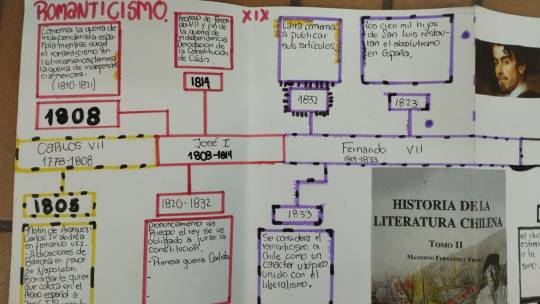

1 note
·
View note
Text
LITERATURA CONTEMPORANEA CHILENA
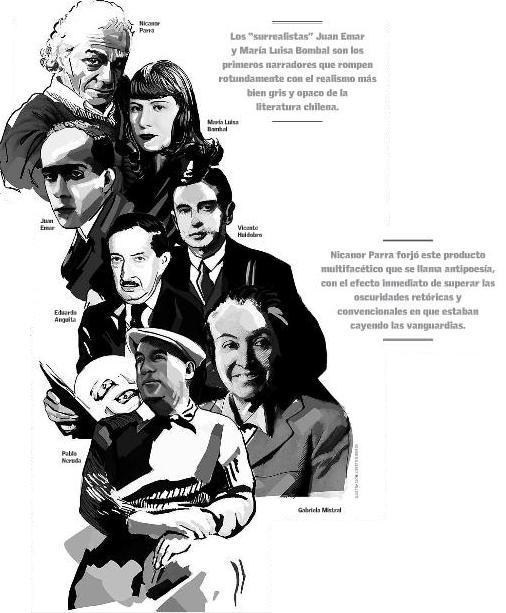
La literatura de Chile hace mención al conjunto de producciones literarias creadas por escritores originarios de ese país; ha sido producida habitualmente en español, aunque existen también autores, principalmente poetas, que utilizan otros idiomas, en particular el mapudungun. Especialmente en el ámbito de la poesía, cuenta con varios escritores de renombre, como Vicente Huidobro, Enrique Lihn, Gabriela Mistral, Pablo Neruda, Nicanor Parra, Pablo de Rokha, Gonzalo Rojas, Jorge Teillier y Raúl Zurita, entre otros. En el campo de la narrativa, destacan también Isabel Allende, Roberto Bolaño, María Luisa Bombal, José Donoso, Jorge Edwards, Pedro Lemebel, Antonio Skármeta, entre otros.El romanticismo en Chile, conforme al análisis del crítico literario Cedomil Goic, puede clasificarse en tres generaciones literarias: la de 1837, 1852 y 1867.
La de 1837, denominada también generación costumbrista, se caracterizó por el desarrollo de un costumbrismo con especial énfasis en lo pintoresco y lo realista, abordándolos desde un punto de vista crítico y satírico En esta generación destacaron Mercedes Marín del Solar, Rosario Orrego, Vicente Pérez Rosales y José Joaquín Vallejo.
La de 1852 o generación romántico-social tuvo una postura más radical a la visión liberal que la generación anterior, presentando el pasado como ejemplo de rectificación del presente. En esta generación sobresalieron José Victorino Lastarria, Salvador Sanfuentes, Martín Palma, Eusebio Lillo, Guillermo Matta y Guillermo Blest Gana. En las décadas de 1950 y 1960, los autores chilenos volvieron a incursionar en la novela histórica. Y ya a partir de 1970, volcaron su mirada hacia los "momentos fundacionales, es decir, las etapas del descubrimiento, Conquista y, en general, el período colonial, lo que conlleva la relectura de los textos canónicos que dan cuenta de dichos proceso históricos, especialmente las crónicas, las relaciones, las cartas del conquistador, que constituyen los pretextos que serán deconstruidos por el discurso alternativo del creador literario" (Eddie Morales Piña. "Brevísima relación de la nueva novela histórica en Chile", Notas Históricas. En este nuevo renacer, la novela histórica basa su contenido en copiosa documentación. Asimismo, los autores chilenos leen disciplinadamente no sólo los libros de Benjamín Vicuña Mackenna, Francisco Encina y Jaime Eyzaguirre, entre otros, sino que también llevan a cabo una revisión completa de cartas, crónicas, diarios íntimos y de viajes.
Aún cuando surgen numerosas publicaciones, en Chile la tendencia no es tan acusada como en otros países de Latinoamérica. Según Mentor Seymour, "este fenómeno puede explicarse por la mayor preocupación de los novelistas chilenos contemporáneos por el pasado inmediato, o sea el golpe militar contra el gobierno de Allende en 1973, la dictadura de Pinochet y las experiencias en el exilio de varios novelistas" (La nueva novela histórica de la América Latina, 1979-1992. México: Fondo de Cultura Económica, 1993.
ROMATICISMO:
El romanticismo en Chile fue un fenómeno amplio, que formó parte de un contexto latinoamericano mayor, en el que predominó la idea de la construcción de la nación con un carácter utópico vinculado al liberalismo político. En el caso de las producciones escritas en Chile, el romanticismo se vinculó en su origen a la llegada de intelectuales argentinos hacia 1840 y al Movimiento Literario de 1842.
Durante la década de 1840, surgió en Chile una producción intelectual comprometida con la idea de la identidad nacional. Este fenómeno ha sido relacionado, por un lado, con el Discurso de incorporación a la Sociedad Literaria de José Victorino Lastarria (1817-1888), en el que abogó por la necesidad de una literatura de carácter local y, por otro, con el eco de ese llamado recogido por los intelectuales del Movimiento Literario de 1842.
Para Norberto Pinilla (1902-1946), la "escuela romántica" nació en Chile vinculada a este "despertar" de las letras nacionales, en particular, a partir de la ocurrencia de dos debates sobre "cultura filológica y literaria" que se vivieron durante esos años: la controversia filológica, intercambio de artículos en la prensa en los que se discutió respecto al uso de la lengua en América; y la polémica del romanticismo (Pinilla, Norberto. Panorama y significación del Movimiento literario de 1842.
REALISMO:
El realismo literario es una corriente estética que supuso una ruptura con el romanticismo, tanto en los aspectos ideológicos como en los formales, durante la segunda mitad del siglo xix. Se extendió también a las artes plásticas en Latinoamérica, lugar donde hasta entonces no había gran proliferación en este arte. Este se caracterizaba por una extensa y muy detallada información de los personajes, paisajes, escenas, etc. De esta forma, podían ser imaginados con mayor facilidad.
youtube
1 note
·
View note
Text
Do football managers matter?
“Managers can’t perform magic, although some people seem to think they can. They’re not David Copperfield or Harry Potter. They can’t work miracles or sprinkle some magical dust to make players know how to play football. Spending hours on analysis isn’t very useful. It doesn’t put you in better conditions to win the game. The tactics, the schemes, they’re all bull***t. Of course tactics matter, but players win the game. ... But don’t take my word for it. Everything you just read came straight from the mouths of Pep Guardiola, Jurgen Klopp, Antonio Conte, Marcelo Bielsa, Massimiliano Allegri, Erik ten Hag, Ernesto Valverde, Juanma Lillo and, of course, Sam Allardyce, who’s up there with all of them. ...”
The Athletic
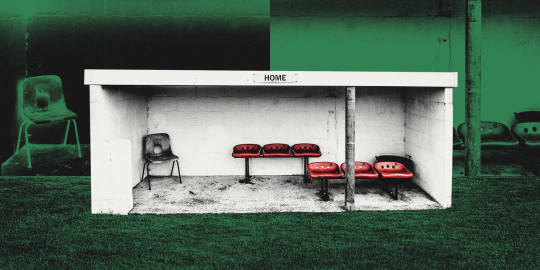
0 notes
Text
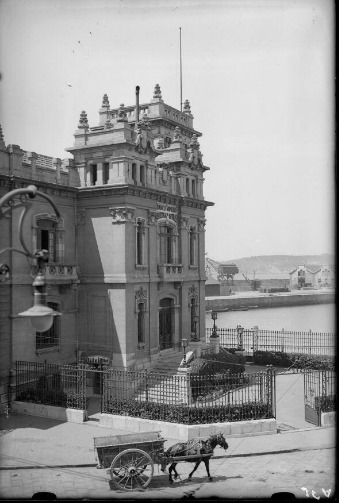
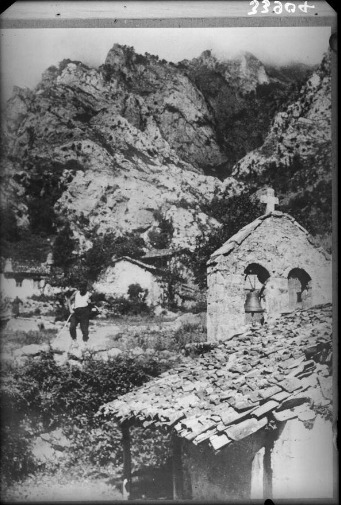
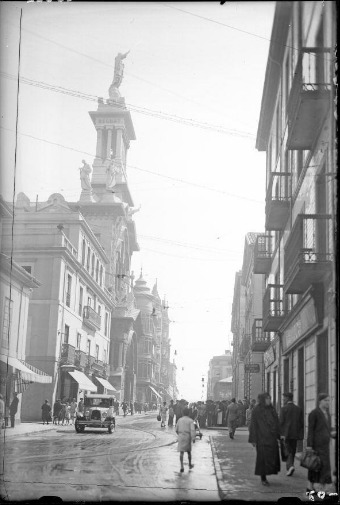



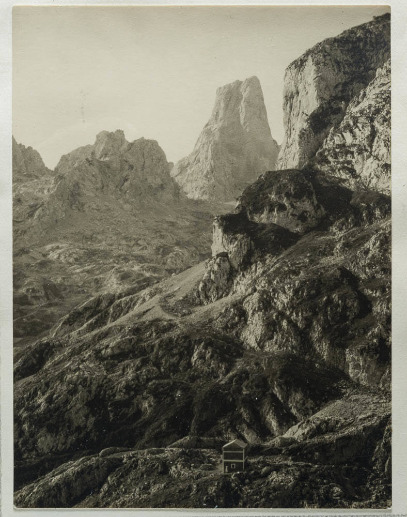



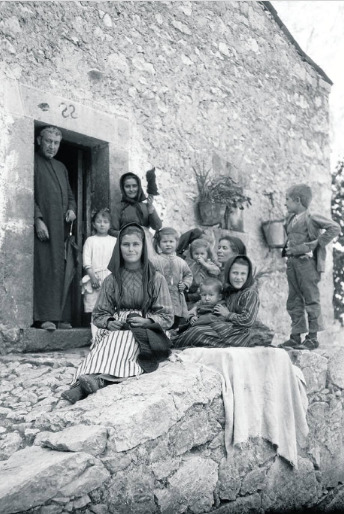



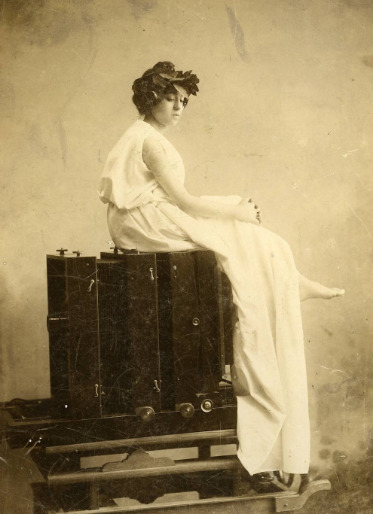




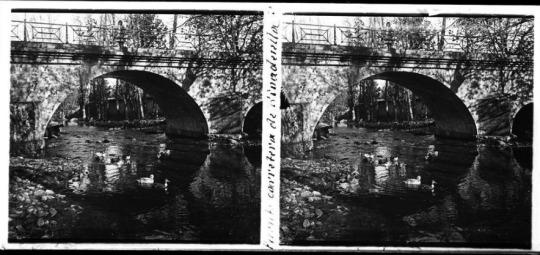
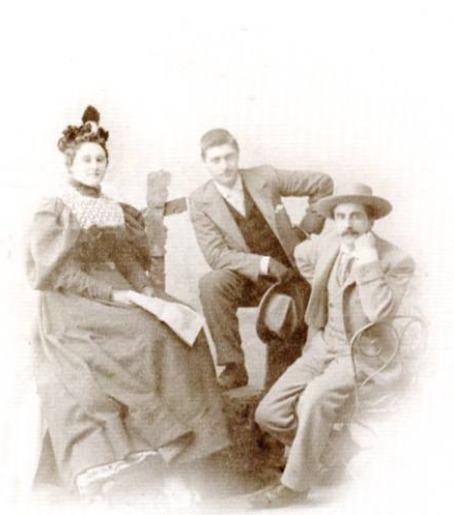

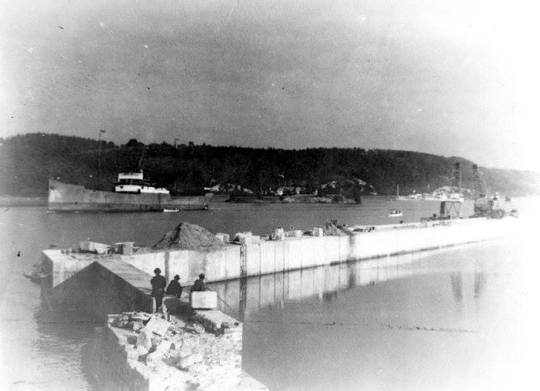

Fotografías históricas de Asturias
1-. ©Antonio Pasaporte - Banco Minero Industrial de Asturias, 1928
2-. ©Antonio Pasaporte - Cain, 1928
3-. ©Antonio Pasaporte - Calle Jovellanos, 1928
4-. ©Antonio Pasaporte - Las Salinas, 1928
5-. ©J. Laurent - Naranco, 1869-1866
6-. ©Juan Miguel Pando (Vidriogelatina)
7-. ©Otto Wunderlich - Naranjo de Bulnes, 1955
8-. ©Pando - Vista del embalse de Salime, 1955
9-. ©Pando Barrero - Playa de Gijón, 1952
10-. Archivo CNIAAE - Gijón, obras del puerto 1902-1925
11-. Archivo Wunderlich - Un grupo de vecinos a la puerta de una casa en Bulnes
12-. Calle La Cámara 1909
13-. Charles Clifford - San Miguel de Lillo (1854)
14-. Fuente, plaza Pedro Menéndez
15-. Julio Peinado Alonso - Alegoría de la fotografía (1930)
16-. La playa de Salinas, presumiblemente a principios de los años 60
17-. Luis Muñiz-Miranda - Quinta de Sogrondio
18-. Manuel García Alonso - Vista de la ría de Avilés (1951)
19-. Monasterio de San Pedro de Villanueva, Casa Moreno
20-. Puente en carretera de Ribadesella de 1892. 1930
21-. Ramón García Duarte - Retrato de Elvira y Darío Turán junto a Iván García Trelles (c. 1891)
22-. Una mujer tendiendo la ropa en Cudillero, 1967
0 notes
Text
Modena, prosegue la programmazione settimanale della rassegna culturale La Tenda

Modena, prosegue la programmazione settimanale della rassegna culturale La Tenda.
Spazia tra la musica, il cinema e la letteratura, con un approfondimento sulla figura di Pier Vittorio Tondelli, la programmazione settimanale della Tenda, dove prosegue con quattro appuntamenti la rassegna culturale inserita nell’ambito delle attività proposte dall’assessorato alle Politiche giovanili del Comune di Modena. Le iniziative sono a ingresso gratuito.
La settimana si apre con due appuntamenti curati dall’associazione Rosa Bianca. Mercoledì 14 dicembre alle ore 20.30 è in calendario, infatti, il concerto “Il coro Rosa Bianca e Psicantria cantano il Natale” con Simone Guaitoli (pianoforte) e Veronica Zampieri (direttore); Lillo Venezia presenta la serata. Sempre curata da Rosa Bianca, in collaborazione con Unimore, è l’appuntamento di giovedì 15, sempre alle 20.30, con la proiezione del film “Offside” (Jafar Panahi, 2006). La visione della pellicola, che utilizza il calcio per indagare sulle contraddizioni e i problemi dell’Iran contemporaneo, è preceduta da un dibattito in cui intervengono Maria Donata Panforti (docente di Diritto privato comparato a Unimore); Vincenzo Pacillo (docente di Diritto ecclesiastico e canonico e Direttore di Orfect - Osservatorio di Unimore sulla libertà religiosa nella giurisprudenza della Corte europea dei diritti dell’uomo); Maria Chiara Rioli (ricercatrice di Storia contemporanea a Unimore); Paola Rivetti (docente di Studi iraniani - Partecipazione e conflitto alla Dublin city university); Loris Vezzali (docente di Psicologia sociale di Unimore, progetto Unimore equality week).
Spazio invece alla musica e alla letteratura venerdì 16, alle 21, col secondo appuntamento della “Trilogia della Via Emilia” di SquiLibri, ovvero il collettivo di attori, narratori e musicisti che esplora la letteratura contemporanea proponendo reading in cui le letture di brani si alternano allo storytelling accompagnato da musica dal vivo. La serata intitolata “Storie di un libertino postmoderno” è dedicata allo scrittore reggiano Tondelli e fa seguito a quella di novembre su Gianni Celati e Luigi Ghirri, mentre il 20 gennaio il percorso si concluderà con l’ultima “tappa” incentrata su Antonio Delfini. Malgrado la scomparsa a soli 36 anni per Aids, Pier Vittorio Tondelli ha trasmesso sulla carta una tale carica vitale da risultare tuttora vibrante e seminale. La ricognizione sulla sua opera prende avvio dal suo libro d’esordio, “Altri libertini”, per arrivare fino a “Camere separate”, passando per “Pao Pao”, “Rimini”, “Un weekend postmoderno” e “Biglietti agli amici”. Il collettivo SquiLibri è composto da Stefania Delia Carnevali, Eleonora De Agostini, Claudio Luppi, Francesco Rossetti, Daniele Rossi e Luca Zirondoli.
Il programma settimanale della struttura di viale Monte Kosica si conclude con la musica live, sabato 17 alle 21, col jazz della rassegna “Arts&Jam” curata dall’associazione Muse e da JazzOff produzioni. In concerto si esibisce il Marco Frattini trio, in cui il batterista che dà il nome alla formazione è affiancato da due tra i maggiori esponenti della nuova impronta jazz italiana, Gabriele Evangelista al contrabbasso e Claudio Vignali al pianoforte.
Il calendario completo di tutte le iniziative e le modalità di prenotazione sono consultabili sui canali social e sul sito web de La Tenda all’indirizzo www.comune.modena.it/latenda.
Per informazioni: mail [email protected], telefono 059 2034808.
...
#notizie #news #breakingnews #cronaca #politica #eventi #sport #moda
Read the full article
0 notes
Photo

SCOOP - FANTACASTING cinemotore svela....e ipotizza.... LILLO E CRESCENTINI "Kung Fusi" ? Secondo le indiscrezioni gli YouNuts! all'anagrafe Antonio Usbergo e Niccolò Celaia dopo ALTRIMENTI CI ARRABBIAMO e CON CHI VIAGGI torneranno sul set per girare "Kung Fusi" Produzione sempre Lucky Red https://www.instagram.com/p/Cfn6eDcsmeL/?igshid=NGJjMDIxMWI=
0 notes
Text
(Meet You There)
Part 33 of Biases and Expectations
"Papa."
Xanxus wakes up to his son shaking his arm. He grunts, stretching in place. Where's his wife? "Anton, where's your mama?" Emilia knows Xanxus doesn't like to be woken up. Especially not on a weekend.
"Mama's gone." Antonio sniffles, pressing his damp face against Xanxus's shoulder. "No mama."
That has Xanxus moving. He pulls himself up with his arms, grabs his son and then leaves the bed. "What do you mean gone?"
"No mama." Antonio sighs, one hand on Xanxus's shirt and the other pointing at the kitchen. "Anton's hungry."
"You're hungry?" Xanxus walks around the suite and sure enough, doesn't find his wife. Fuck it, she did wake him for something in the middle of the night and her bag is gone. "Come on," Xanxus takes one of the snacks she had ready for the kid before leaving his suite. "Let's find your mama."
He comes into the birthing room to find his wife on her back, looking exhausted with an arm over her face. Xanxus blinks, he thought… It's been hours since she tried to wake him up.
"Mama!" Anton wiggles in his arms, trying to reach for Emilia. "Found you."
"Careful," Lillo, the fucker, cautions. "Your mama is in pain."
Xanxus sets his son down on her bed when Antonio nods seriously. "Be gentle."
Antonio immediately scuts forward until he can hug her neck, his small body over her chest as he kneels beside her. "There, there, mama."
"Thank you, baby." Emilia smiles, petting Anton's hair. "Lillo," she waits until her brother squeezes her arm. "Get me Doctor Larios, please. I want…"
"Sure thing, Emi."
"No need," the doctor returns, pointedly closing the door in Lussuria's face and ignoring Squalo. "I'm here. Let's check on you."
Lillo squeezes her arm again. "Don't worry, I'm not looking."
Emilia chuckles faintly but she's breathing deeply and measured. "I think…"
Doctor Larios nods, "let's check." He turns to the two of them. "If you could give me space." Both Xanxus and Lillo take a step back. Xanxus feels uncomfortable with a doctor he doesn't really know between his wife's legs but he says nothing. Doctor Larios pats her thigh gently. "Not yet, dear."
His wife grunts again, stretching her arm out. "Help me up? I want…"
"Of course," Lillo picks Antonio up while the doctor helps her to her feet. "You're doing great, Emi."
Xanxus watches her start to pace slowly, her hands clutched over her belly as she waits out each contraction. Somehow he hadn't expected her to be in that much pain. He can see it in her face. Xanxus grabs Doctor Larios' arm when the man passes beside him, "what did you give her for the pain?"
"You mean if we applied epidural already?" Doctor Larios shakes his head, "she doesn't want it."
"Why not?"
"Lussuria's threats, probably." Squalo shrugs, watching his wife carefully.
That's right, Lussuria likes to threaten his victims with drugs. He should have known it would leave a mark.
The doctor is waiting patiently for them but he speaks before Xanxus can give the order. "Even if you order otherwise," the old man looks him in the eye, "I won't allow it to be applied. Commander or not, you have no authority in this room."
20 notes
·
View notes
Text
Il poeta che vive in un piccolo paese
è quello che poi scrive l’epitaffio di tutti
il necrologio sul giornale del paese
per chi resta. E quando pensa al giorno in cui
morirà anche lui che ha scritto la fine degli altri
quella sola volta la pagina resterà bianca.
Riposta nel bianco la sua idea di paese.
Antonio Lillo
2 notes
·
View notes